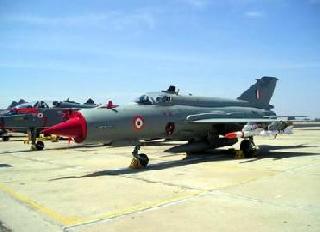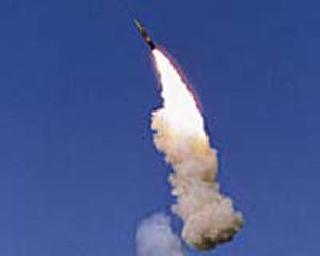
A NASA photo.
SYDNEY (AFP): Astronaut Neil Armstrong has urged a return to the Moon to train for missions to Mars as the United States contemplates the future of its space programme following the end of the shuttle era.
The first man to walk on the Moon is due to address the US Congress on new directions for NASA in coming weeks.
He has previously criticised US President Barack Obama for being "poorly advised" on space matters and said it was "well known to all that the American space programme is in some chaos at the present time, some disarray".
"There are multiple opinions on which goals should be the most important and the most pressing," he told a function in Sydney late Wednesday.
The US shuttle programme came to an end last month with the Atlantis cruising home for a final time, 42 years after Armstrong became the first person to set foot on the Moon as part of the Apollo 11 mission.
Critics have assailed NASA for lacking focus, with no next-generation human spaceflight mission to replace the shuttle programme.
Now 81, Armstrong said the agency had become a "shuttlecock" for the "war of words" between the executive, legislative and congressional arms of US government.
"It's my belief given time and careful thought and reasoning we will eventually reach the right goal, I just hope we do it fairly quickly," he said.
The normally private and reserved space veteran said Mars should be the next frontier for exploration but urged more missions to the Moon as the vital next step.
"I do favour going to Mars but I believe it is both too difficult and too expensive with the technology we have available at the current time," he said.
"I favour returning to the Moon. We made six landings there and explored areas as small as a city lot and perhaps as large as a small town. That leaves us some 14 million square miles that we have not explored."
Armstrong said working on the Moon would allow scientists to practise "a lot of the things that you need to do when you are going further out in the solar system" while maintaining relatively close contact with Mission Control.
Communication is the major problem for trips to Mars, he said, with the relay of a message between Earth and the red planet delayed by about 20 minutes, compared with 1.5 seconds between here and the Moon.
Travel time is also a major concern, with a journey time of two months when Mars was closest to Earth, but also at its most rapidly spinning trajectory, requiring massive amounts of fuel to land.
 Previous Article
Previous Article Next Article
Next Article













The Indian Air Force, in its flight trials evaluation report submitted before the Defence Ministry l..
view articleAn insight into the Medium Multi-Role Combat Aircraft competition...
view articleSky enthusiasts can now spot the International Space Station (ISS) commanded by Indian-American astr..
view article